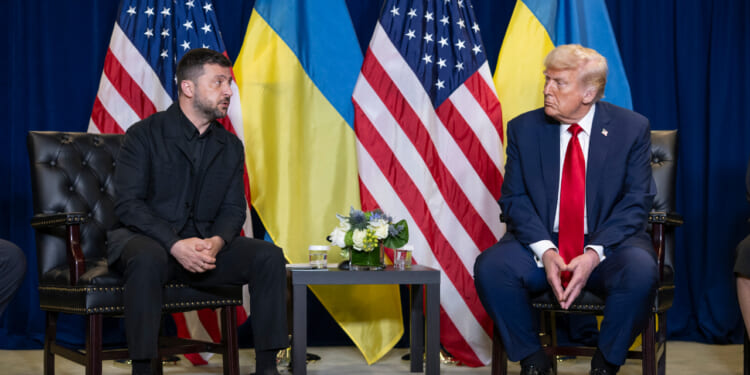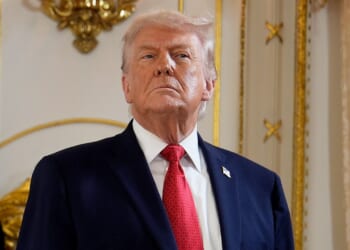President Trump has ruled out sending Tomahawk missiles to Ukraine for now. What does that mean for the prospects of ending the war?
In the last three months, President Donald Trump has shifted his stance considerably on how to bring the Russia-Ukraine War to an end. In February, he dismissed Ukraine’s chances of victory and berated Ukrainian president Volodymyr Zelensky in the Oval Office. In August, he welcomed Russian president Vladimir Putin to Alaska in what turned out to be a largely unproductive summit. In September, he announced that he believed that Ukraine could regain Russian-occupied territory and ramped up his sanctions campaign to squeeze Russian oil exports from the international market.
Now, after meeting with President Trump at the White House on Friday, President Zelensky confirmed that his counterpart would not deliver Tomahawk missiles to Ukrainian forces. President Trump had previously suggested the weapons transfer earlier that week in a bid to gain negotiation leverage over Moscow. Access to Tomahawks, long-range, precision cruise missiles, would allow Ukraine to strike military, energy, and infrastructural targets deep within Russian territory.
The news comes after President Trump agreed to meet with President Putin in Budapest sometime in the next few weeks, a meeting President Zelensky has agreed to join provided it is held under a format acceptable to Ukraine. President Putin also warned against American provision of Tomahawks to Ukraine, saying that doing so would constitute a “significant act of provocation” without impacting Russia’s war effort.
In this episode of the Three Questions Podcast, Paul Saunders discusses the role of Tomahawk missiles in negotiations to end the Russia-Ukraine War. Why has President Trump refused to send this weaponry to Kyiv? Did the Tomahawks provide the White House with sufficient leverage in negotiations with Russia? Has this episode enhanced or diminished the prospects for an end to the Ukraine War and a general settlement?
Listen now on Apple, Spotify, or wherever you get your podcasts.
About the Speaker: Paul Saunders
Paul J. Saunders is President of the Center for the National Interest and a member of its board of directors. He is also Publisher of The National Interest. His expertise spans US foreign and security policy, energy security and climate change, US-Russia relations and Russian foreign policy, and US relations with Japan and South Korea. Saunders is a Senior Advisor at the Energy Innovation Reform Project, where he served as President from 2019 to 2024. He has been a member of EIRP’s board of directors since 2013 and served as chairman from 2014 to 2019. At EIRP, Saunders has focused on the collision between great power competition and the energy transition, including such issues as energy security, energy technology competition, and climate policy in a divided world. In this context, he has engaged deeply in energy and climate issues in the Indo-Pacific region, especially US relations with Japan and South Korea. His most recent project at EIRP is an assessment of Russia’s evolving role in the global energy system.
Image: Official White House Photo by Daniel Torok

















